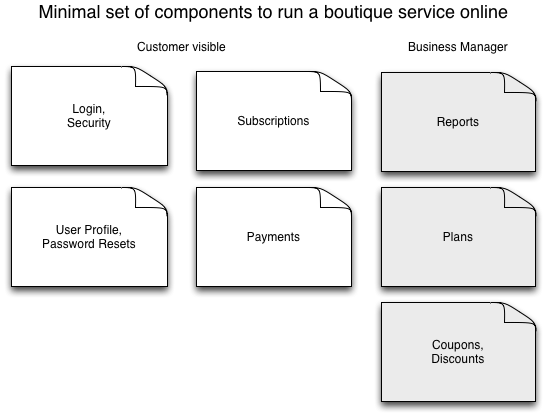Hiring a technical co-founder
by Sebastien Mirolo on Sun, 3 Jul 2016
 You are starting a Software-as-a-service business to clinch this nagging pain
you had at the company you just left. You have connections and some business
expertise but the only line of code you have ever seen was in an 80s movie
where a kid prevented a nuclear war by having a computer play tic-tac-toe
against itself. You are definitely looking out for a technical co-founder.
You are starting a Software-as-a-service business to clinch this nagging pain
you had at the company you just left. You have connections and some business
expertise but the only line of code you have ever seen was in an 80s movie
where a kid prevented a nuclear war by having a computer play tic-tac-toe
against itself. You are definitely looking out for a technical co-founder.
How do you decide if the technical person in front of you is a right fit? Here how to do it in one question. You don't even have to understand the question. Just ask it.
Which technology stack are we going to use?
The coder: "PHP", "Nodejs", "Rails", "Django", ... any other trending language or framework.
The architect: "What workload are we looking at?"
The manager: "How many features do we have to build over the next month?"
The executive: "Who do we sell to?"
All answers are good answers and if you convince someone to crank out code so you can start selling, you are already a step ahead.
None-the-less let me explain the impact different choices will have on your product and business and how it relates to the answers you might get to the question "Which technology stack are we going to use?".
The executive answers with a question about customers and market. In her mind, she is already evaluating the partnership and technology integration that will be necessary to make the business successful. She is looking at which platforms and technology eco-systems will help achieve the business goals. That person might decide to stake your company on the Salesforce platform or do a iPhone app. The business drives the technical choices.
 The manager answers with a question about the product. In her mind, she
is evaluating how many people will be necessary to build a prototype, what
level of skills will be necessary to build and maintain such a product.
PHP programmers are available World-wide. There are a lot of junior programmers
around with Javascript experience. If the product is straightforward plumbing,
it will be cost-effective to hire those people. If we are building some
secure high performance imaging system, we might need C++ experts with deep
knowledge expertise. Harder to find. A lot more expensive. Either way,
if we stake our technology stack on a dynamic language (ex: Javascript), we
will need a lot more extensive testing early on. That needs to be included
in the cost. The hiring process drives the technical choices.
The manager answers with a question about the product. In her mind, she
is evaluating how many people will be necessary to build a prototype, what
level of skills will be necessary to build and maintain such a product.
PHP programmers are available World-wide. There are a lot of junior programmers
around with Javascript experience. If the product is straightforward plumbing,
it will be cost-effective to hire those people. If we are building some
secure high performance imaging system, we might need C++ experts with deep
knowledge expertise. Harder to find. A lot more expensive. Either way,
if we stake our technology stack on a dynamic language (ex: Javascript), we
will need a lot more extensive testing early on. That needs to be included
in the cost. The hiring process drives the technical choices.
The architect answers with a question about machines. A freemium business is looking to have vast amount of people with few paying for the service. Growth is everything. An accounting web application might see a huge spike of activity at the end of the month. In her mind, she is thinking about the complexity of the Internet-facing operations. If you have every single customer pay a monthly subscription and they are expected to log into the system once in a while, not all at the same time, then you can easily scale a business to 500K/year on a single server. If the usage pattern is quite different, if growth is expected to be off the roof, a scalable cloud infrastructure is going to be a early requirement. If the amount of data necessary to put value into the business is huge, a NoSQL solution might be required from the get-go.
The coder is sure of himself. He answers with whatever he is most experienced with. If you are just started and still have no idea about the market and no customers, the coder will deliver something you can sell. A great start. If you are lucky, he just happens to know the technology which will turn out to be the best choice to scale your business. If you are unlucky, you will have to scratch that first product implementation and rebuild at a time when you found product/market fit.
Conclusion
You want to find the four profiles in technical co-founder. She has to be able to look forward in the future, plan the road to get there, build the team to get there, and be able to put the first stones down.
These technical people are rare (as much as business people that can actually close deals). If you find someone motivated and with a knack for building a team it is a great start. If you find someone that is mostly focused on writing code, think about hiring them as a contractor first. At least make it clear that they are a co-founder, yes, but someone else will certainly be hired to be their boss in the near future.
More to read
If you are looking for more posts about what it is like to build a boutique subscription product, you might enjoy Mental Preparation for the Future CEO and A typical day building a boutique hosting platform
More business lessons we learned running a SaaS application hosting platform are also available on the DjaoDjin blog. For our fellow engineers, there are in-depth technical posts available.
